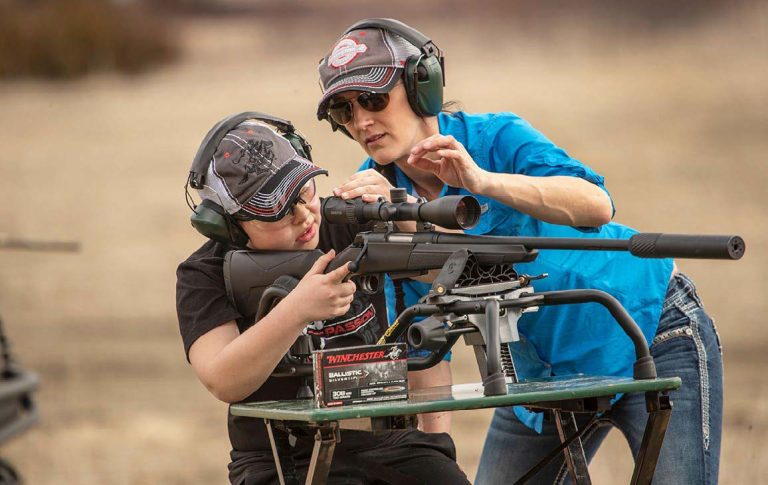PHOTOS: COURTESY OF MELISSA BACHMAN
‘Memory Chase’ is more than a segment of the Winchester Deadly Passion TV show; it’s also a movement to spur kids to explore hunting and the outdoors.
Unless you’re not a hunter or you’ve been living underneath a rock, Melissa Bachman needs no introduction. Perhaps you’ve watched her TV show, Winchester Deadly Passion. If so, you’re probably familiar with the “Memory Chase” segment, but if not, that’s okay. Here’s the scoop.
In this segment, kids are encouraged to film their hunts (with help from parents or mentors) and submit the raw footage to Melissa. She then chooses a winner and edits the winner’s footage to be featured on the Memory Chase segment. (Note: those looking to submit footage can find an entry form on the Memory Chase website.)
“I review every entry,” Melissa assures. “The winner gets to be on TV, and multiple sponsors provide a huge prize package for the winner. I also send the winner an autographed card and a DVD of the edited video.”
That’s all great, but the segment has a deeper purpose than TV and prizes. It is Melissa’s vision for hunting’s future. To her, it’s a catalystto get kids interested in hunting and their parents or mentors excited about taking them hunting.
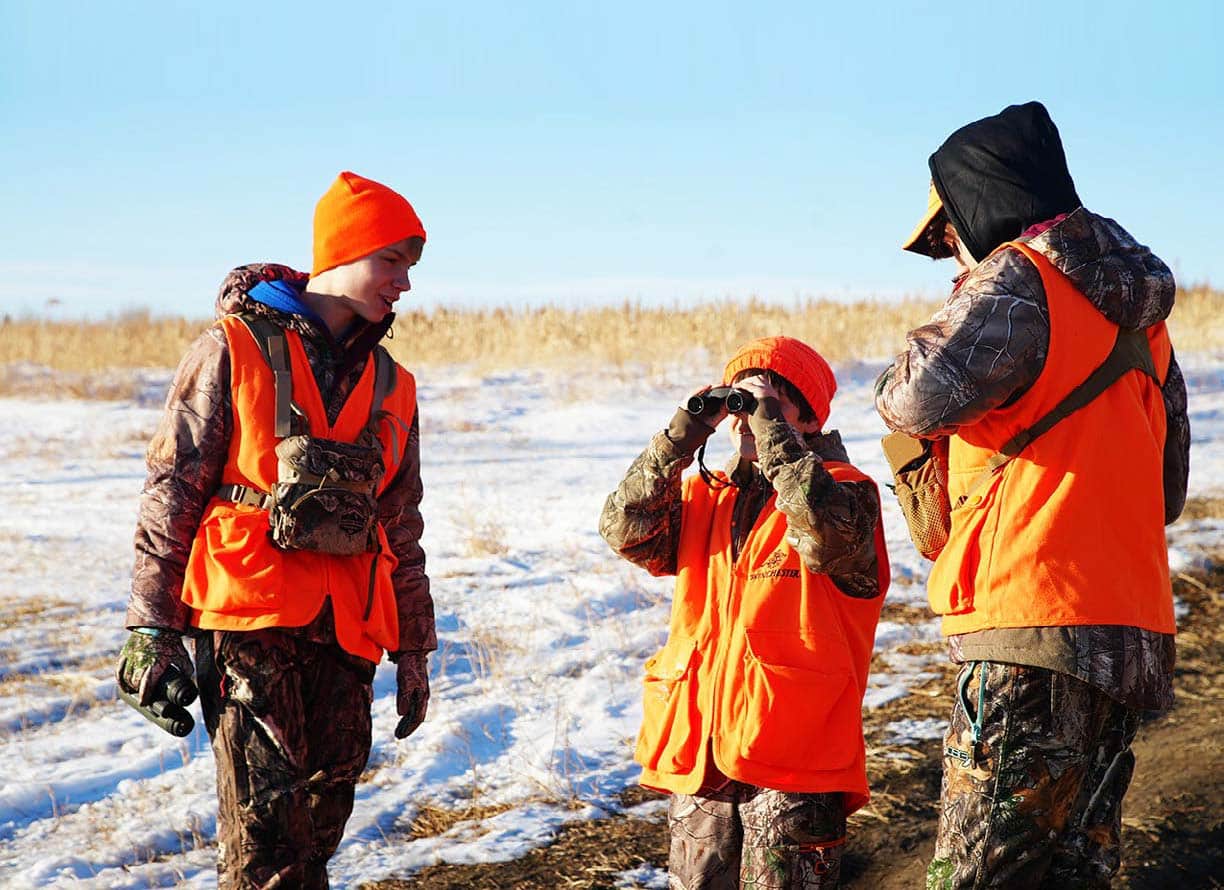
The Mission
The Memory Chase motto, “Building our future one child at a time,” summarizes the project’s mission, but I’ll let Melissa share her heart behind this effort and how it got started.
“I started Memory Chase as a way to get more kids interested in hunting and the outdoors,” she says. “I firmly believe in creating competitions and incentives for kids to become integrated into the hunting community or at least see to what it’s all about. Memory Chase is that incentive. Bottom line, I want kids to get hooked on hunting, and this is an effective tool to achieve that goal.”
So, what exactly melts Melissa’s heart as she reviews entries?
“It’s all about the footage and the young hunter’s excitement,” she says. “It’s not at all about the size of the animal. I want kids to chase the dream of being on TV, but more than that, I want them to get out and have a great time hunting with their families.”

Melissa shares that she’s commonly asked about the challenges of being a female hunter. Since she grew up watching her mother hunt with her father—the Bachmans hunted as a family—she has never understood why being a girl should hinder someone from hunting. So, she wants to show others, as her mother showed her, that hunting is for everyone who is interested in trying it.
“I go to all kinds of outdoor and hunting shows and meet tons of kids,” Melissa reports. “Memory Chase is my platform to say that they can chase their dreams and be just like me someday. One example is when I met some girls who had never hunted before. I told them all about Memory Chase, and they got excited about trying hunting. Well, they went out and got their footage, and a few of them were selected as winners.
“Memory Chase gets the hunting bug started,” she continues.. “It gets them interested. Whether Memory Chase or something else sparks their interest, many times they become hunters for life, especially if the parents or mentors do a great job and make it fun.”
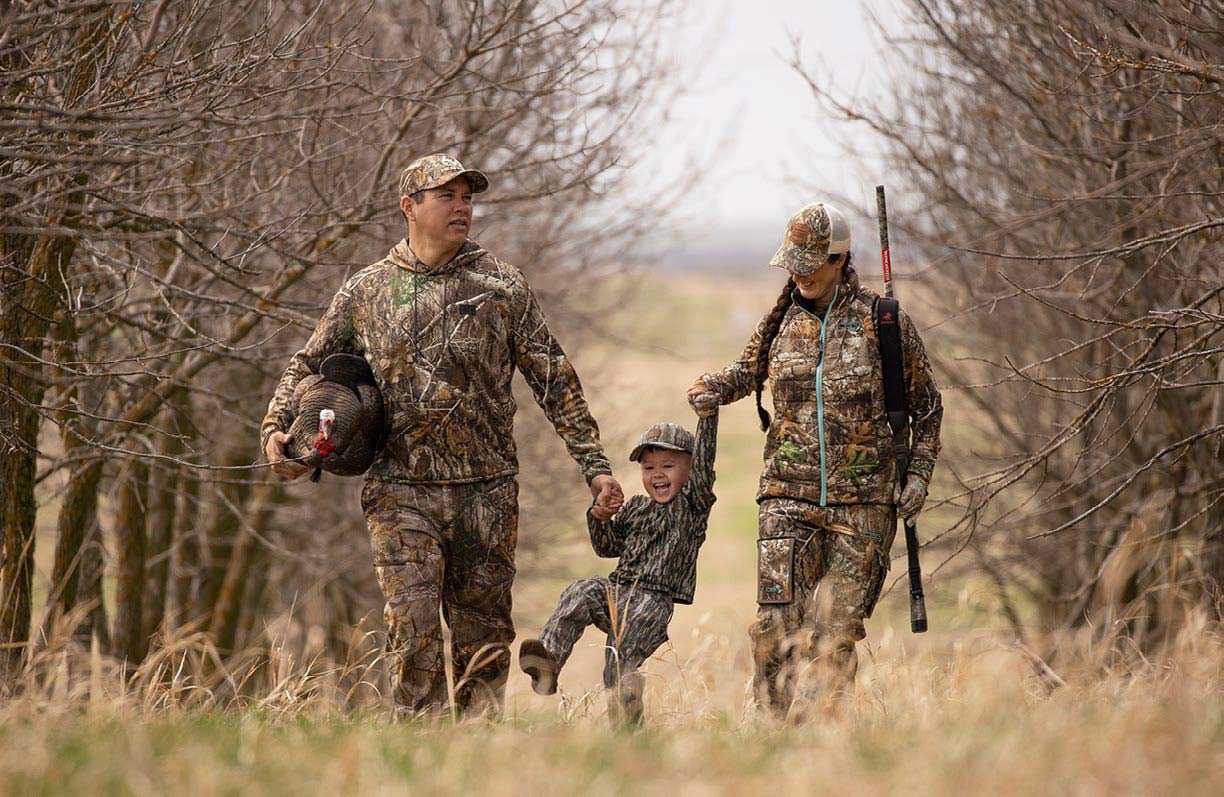
The Power of Mentorship
Mentorship is a powerful tool, especially in hunting. The fact is that many people—kids especially—don’t know how to get started. It’s actually quite easy to get started, but some people simply need a mentor before they can grow wings and fly.
“When I was a young girl, it was really impactful that my mom and dad both hunted,” Melissa shares. “They’ve been mentors to me my entire life, but not everyone is as fortunate, and it’s important for kids to have people to look up to. Kids watch YouTube, they watch Sportsman Channel, they read the magazines, they want to learn more. Those things get them interested in hunting, but then it’s important for parents or mentors to help them take the next steps.
Melissa continues, “As a hunting community, we could get more people into hunting if we could have more mentors. It’s important because there are kids out there from families who don’t hunt. If you have kids, have them invite their friends to go hunting. Maybe they don’t actually hunt right away, but at least they’re exposed to it. If you show them a great time, it will leave a positive impact. What’s really neat about mentoring is that it usually has a huge impact on the mentor, too.”
Melissa talks of how she does this in her small community. “Our kids invite kids who’ve never hunted before to join us. We’ve had such wonderful experiences, and when they get a deer or turkey, we have the meat processed,then we deliver it to their families. It feels great to tell the hunting story to the general community, make a difference and teach kids to hunt.”
Now, if you are wondering what makes a kid a good candidate for hunting, Melissa believes that anyone willing to give it a try fits the bill. “They have to be willing to try it,” she says, Also, they will also need to listen and follow instructions. They don’t necessarily have to love the outdoors. I’ve had young girls who wouldn’t go turkey hunting unless their whole head was in ringlet curls. That’s OK because we have to remember that there are many different types of hunters from all different walks of life.”
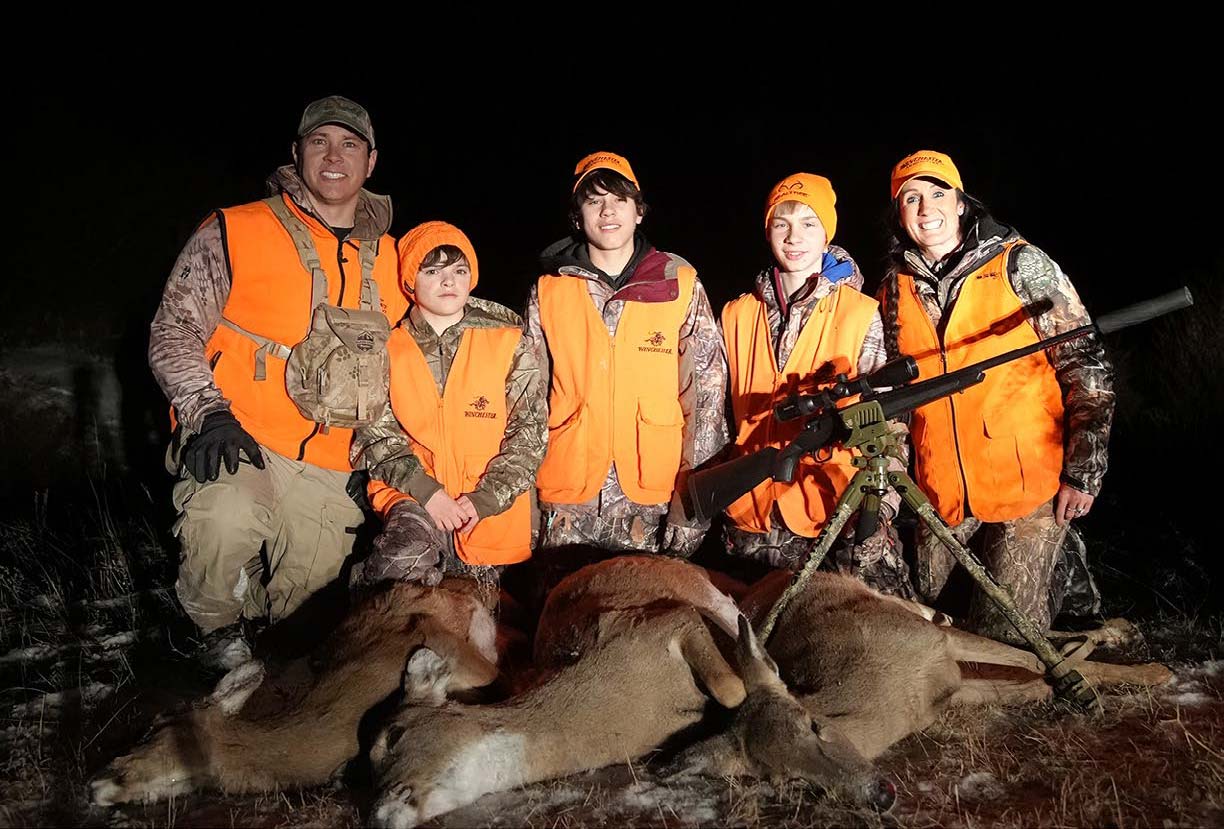
The Past and the Future
After many years in the hunting community limelight, Melissa hasn’t forgotten her roots and the simple joys of being a kid.
“I remember reading every Outdoor News paper I could when I was a kid,” she says. “I submitted pictures and even won some things. I always looked forward to reading every issue and seeing who won the photo contest. It was exciting to me. That’s my aim with Memory Chase; to get kids excited about hunting with their parents or mentors.”
Melissa says she foresees Memory Chase continuing in its present form. “I believe it’s a really great program, and it’s working. Yes, there are challenges, such as making time to review entries and produce the additional footage, as well as getting enough kids to enter. But, I’m passionate about this. The satisfaction of seeing young people hunting and chasing their dreams makes the challenges well worth it.”
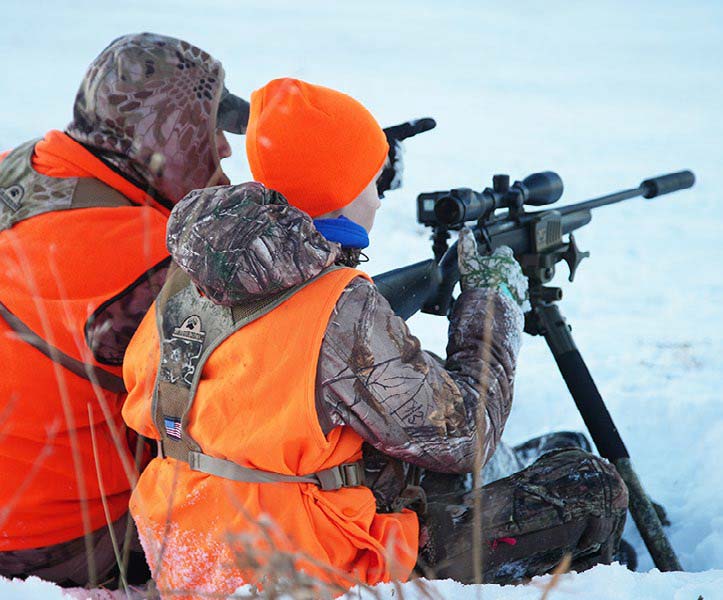
Tips for Mentoring a New Hunter
Safety is number one when taking a kid or anyone else hunting. After that, Melissa says, you have to make it a fun experience.
“Some people push kids too hard and make it all about getting an animal or even a big animal,” she says. “After a season with that pressure, don’t be surprised if the kids don’t want to go anymore. Not everyone is designed to be a hardcore hunter, and not everyone wants to sit from dawn to dusk. It has to be fun. Make it an experience they’ll remember and something that they want to do over and over again.”
She advises this additional element: “Always bring lots of snacks. Also, make it interactive. When turkey hunting, let the kids try calling. It’s the same thing with deer hunting. Let them grunt and rattle. Kids get intrigued and want to learn. Be a great teacher and welcome their questions. Yes, it’s important to be quiet in the field, but it’s even more important for kids to understand what’s going on and how things work.”
Bachman says it’s not always all about the hunting. She believes that enjoyment of the outdoors presents a huge playground with endless learning opportunities.
“Take kids shed hunting,” she suggests. “Let them examine tracks and animal sign. Teach them about mushroom hunting. When we take our kids out, our two little dogs come with us. Does it hinder the hunt somewhat? Sure, but it’s more fun for everyone. I also allow electronics so that going hunting doesn’t feel like a punishment. But, I try to make hunting so much fun that the kids put down the electronics and forget all about them.”
She has another suggestion. “One more thing, as long as it’s a legal animal, let the kid decide which animal they want to shoot. If they think it’s too small, no big deal. If they’re thrilled with it but you think it’s too small, let them take the shot and enjoy the experience anyway. And if they’re not ready to take a shot at an animal, the worst thing to do is push them to take it anyway. Instead, hand them a camera. Let them take pictures and be a part of the hunt, but never push them, or they’ll burn out and not want to go again.”
There are many resources to help new hunters get started, beginning with the footer of this website with links to State Department of Natural Resource offices (Where to Hunt), locations to find shooting ranges (Where to Shoot), and other Hunting Resources.
Plus, here are some North American Deer Hunter tips and tactics; and some additional information on “how to hunt.”
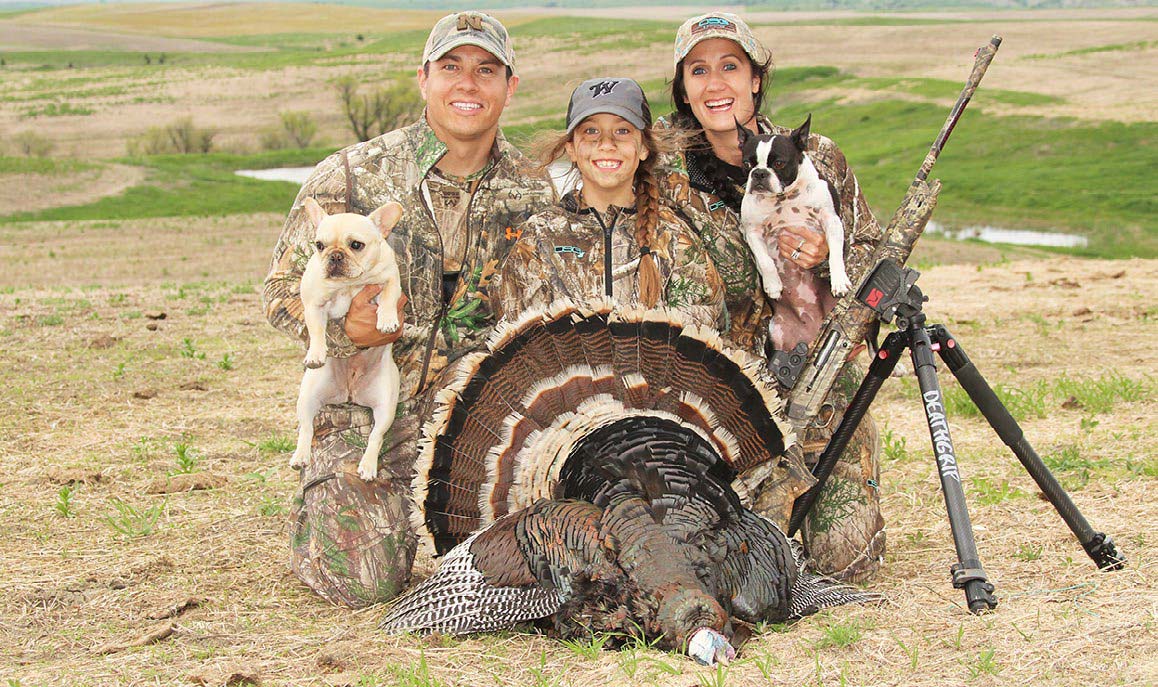
Per our affiliate disclosure, we may earn revenue from the products available on this page. To learn more about how we test gear, click here.



